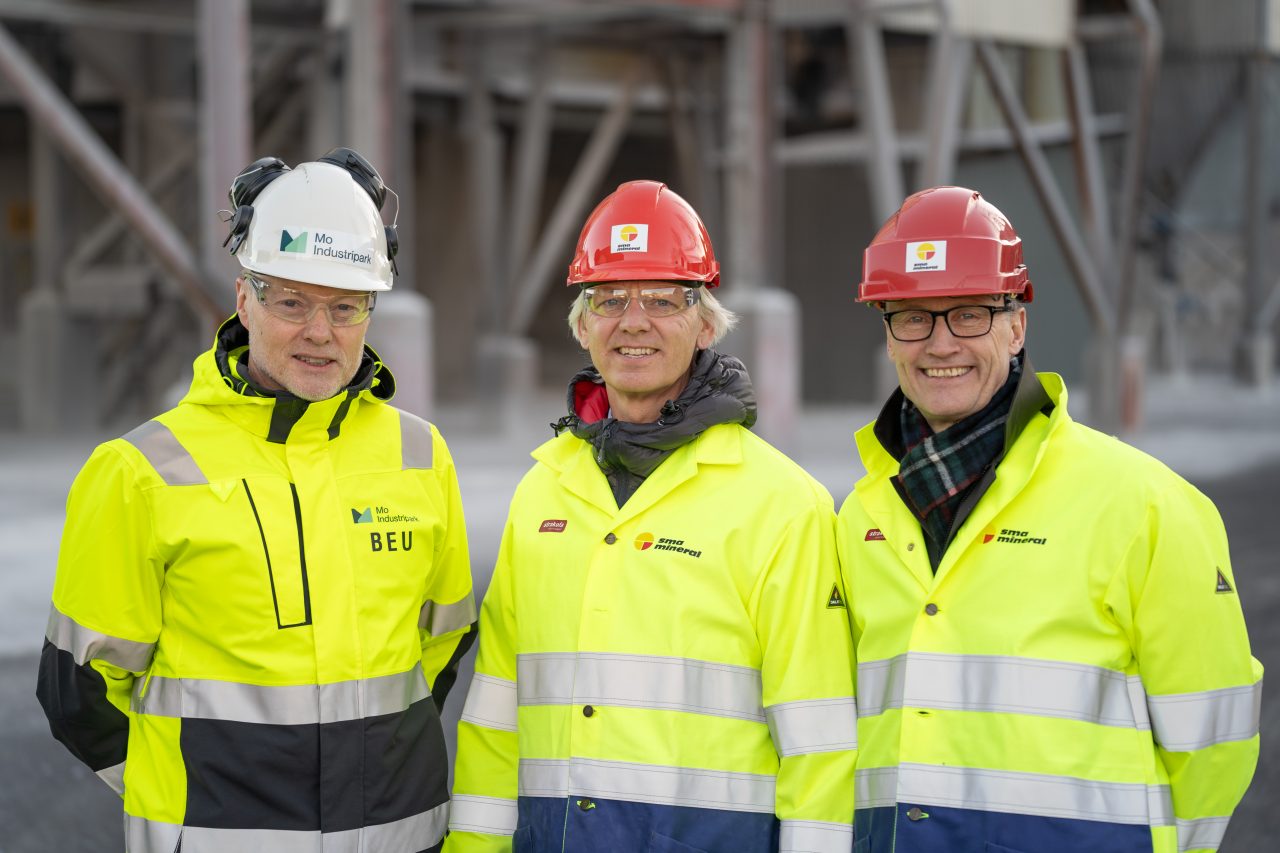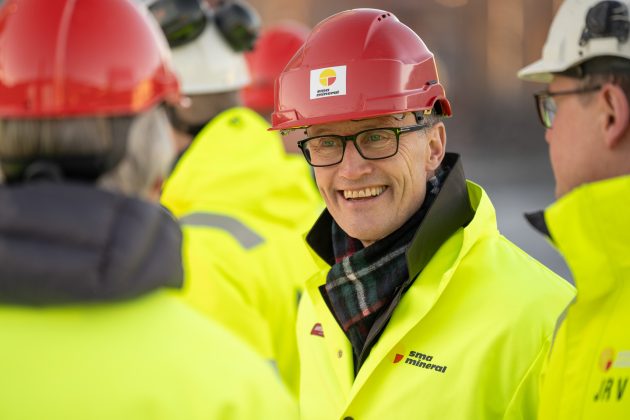
SMA Mineral receives Enova support for groundbreaking climate project
14 February, 2025 7:48 Del DelThe production of lime and cement accounts for approximately 8% of global greenhouse gas emissions. Now, SMA Mineral has secured Enova funding of NOK 287 million for a groundbreaking project with significant global scaling potential.
SMA Mineral plans to build a new lime plant in Mo Industrial Park, utilizing an entirely new technology that enables the use of electricity instead of fossil energy. This eliminates a major source of greenhouse gas emissions from lime production. However, even with the new kiln, CO₂ emissions will still be released from the limestone itself. These emissions will be captured and used for the production of Sustainable Aviation Fuel (SAF, also known as e-fuel) using green hydrogen. To achieve this, SMA Mineral has partnered with the American e-fuel producer Infinium.
Enova’s support enables the realization of the project’s first phase, which will serve as a full-scale pilot. This pilot is expected to be operational as early as 2026, and SMA Mineral aims to establish a full-scale factory if the pilot proves successful.
This initiative represents yet another example of circular economy and industrial symbiosis in Mo Industrial Park, where by-products from one company can be used as raw materials for another.
An Innovative Solution for the Lime Industry
SMA Mineral is a family-owned company that has long been a significant player in the lime industry, supplying primarily to the steel and pulp industries. Celsa’s plant in Mo Industrial Park, for example, uses lime from SMA Mineral.
Lime is an essential raw material for various applications, including drinking water purification, plastic and steel production, soil improvement in agriculture, and pH regulation in lakes. As a result, global demand for lime remains high.
“We face two major challenges: we emit large amounts of CO₂ in our production, and we need to improve the utilization of the lime we extract from the earth,” says Svante Fielding, CEO of SMA Mineral.

Svante Fielding, CEO of SMA Mineral.
The new kiln will be based on technology developed by the Swedish company SaltX. This technology uses electricity to heat the lime, creating a closed system where CO₂ from the limestone can be directly captured without energy-intensive carbon capture processes.
From CO₂ to Sustainable Aviation Fuel
To ensure that the captured CO₂ is not released back into the atmosphere, it will be used as a raw material for SAF production. This will be done in collaboration with Infinium, a company that already operates commercial e-fuel facilities in Texas.
“We combine CO₂ with hydrogen to produce aviation fuel. This is an important step in the transition to more sustainable aviation,” explains Fielding.
The total investment in the project is estimated at between NOK 12 and 15 billion. Around 250 jobs are expected to be created directly and indirectly as a result of this initiative.
A Milestone for Green Industry
Enova, the Norwegian state agency dedicated to accelerating the transition to a low-emission society, has chosen to provide substantial support for the project.
“This project is at the core of what we aim to promote—industrial transformation,” says Nils Kristian Nakstad, CEO of Enova. “SMA Mineral’s initiative is a prime example of how we can reduce emissions while creating new value chains.”

Nils Kristian Nakstad, CEO of Enova.
In Enova’s press release, Minister of Climate and Environment Andreas Bjelland Eriksen (Labour Party) states that the project is crucial for reducing emissions and building expertise.
“Cutting emissions in industry is essential for Norway to succeed in the green transition and maintain future competitiveness. This pilot project is important not only for reducing emissions but also for developing a strong knowledge base and the industrial jobs of the future in Mo i Rana,” says Eriksen.
The Road Ahead
The first production line, serving as a full-scale pilot, is scheduled to be operational in 2026. If the technology proves successful, SMA Mineral plans to establish seven additional production lines. This could lead to significant global emission reductions through technology adoption.
“The emissions from the lime and cement industry account for around 8% of global CO₂ emissions. The technology we are developing here could therefore have a massive impact far beyond Norway’s borders,” emphasizes Fielding.
SMA Mineral’s ambition is to replace today’s fossil-fueled lime production with a more sustainable solution that not only reduces emissions but also creates new green value chains.
“It is here in Mo Industrial Park that we are developing the technology of the future. We look forward to demonstrating that this works on a large scale,” concludes Fielding.
Disclaimer: This article has been translated from its original Norwegian version using Chat GPT. Although it has been carefully proofread prior to publication, in case of any discrepancies or errors, the Norwegian version shall be considered the authoritative text.
Tags: E-fuel, electrification, Elektrifisering, Enova, Hydrogen, Innovasjon, innovation, Kalkfabrikk, lime plant, SIF, sma mineral, støtte, support
Categorised in: Frontpage, Uncategorized
Del Del